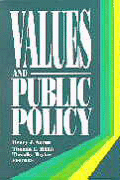Workers with criminal records, in particular black and Hispanic males with criminal records, face many labor market challenges—over and above the challenges faced by the larger population of low-skilled workers. Finding ways to improve employment outcomes for individuals with criminal records is an urgent priority with implications for public safety, the economy, and families of those with records.
New evidence documenting unintended negative consequences of one recent attempt to address this concern—Ban the Box laws that delay employer access to information about applicants—should be considered as the policy discussion moves forward. As policymakers continue efforts to address employment among workers with criminal records, it is imperative that they begin with an understanding of how employers interact with job applicants who have criminal records. Accordingly, a multi-pronged approach—inclusive of effective policies aimed at building workers’ skills, communicating their work-readiness to employers, and promoting robust labor markets for low-skilled workers—is necessary for improving employment outcomes for workers with criminal records.
The author did not receive financial support from any firm or person for this article or from any firm or person with a financial or political interest in this article. She is currently not an officer, director, or board member of any organization with an interest in this article.
The Brookings Institution is committed to quality, independence, and impact.
We are supported by a diverse array of funders. In line with our values and policies, each Brookings publication represents the sole views of its author(s).








Commentary
Increasing employment for individuals with criminal records
October 21, 2016